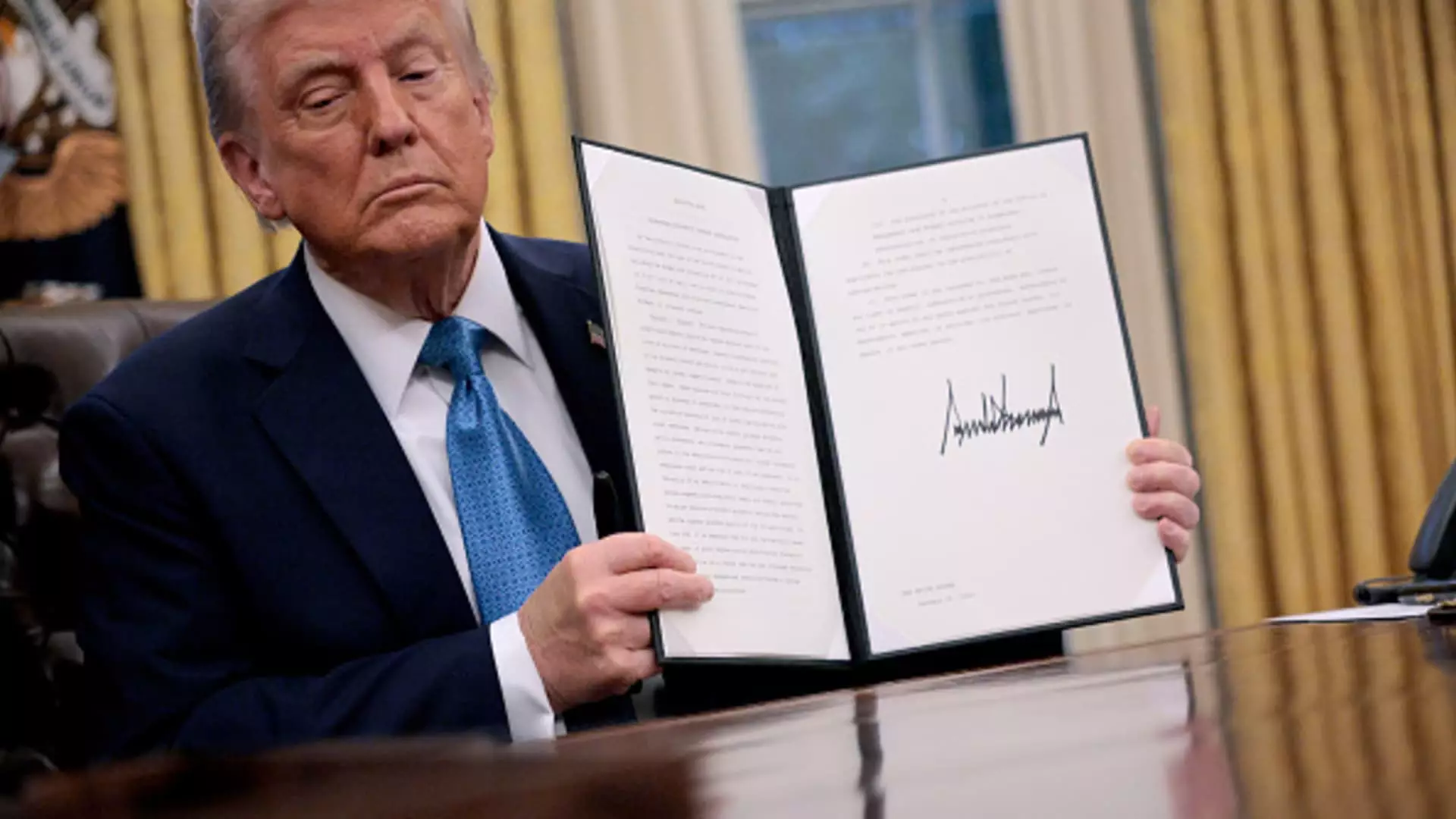The recent imposition of tariffs by President Donald Trump has sent shockwaves throughout the U.S. stock market, igniting fears of a potential trade war that could have both immediate and far-reaching implications. The administration’s decisions to levy substantial tariffs on imports from key trading partners, including Mexico, Canada, and China, have prompted a reevaluation of the economic landscape, leading to uncertainty among industries reliant on international supply chains. This article examines the repercussions of these tariffs and their likely impact on various sectors.
Monday’s trading opened with a jolt as investors reacted to Trump’s announcement of a 25% tariff on goods imported from Mexico and Canada, accompanied by a 10% tariff on Chinese imports. While Trump later indicated a temporary suspension of tariffs on Mexico, contingent upon the deployment of additional military resources to combat drug trafficking, the initial reactions from the market were telling. Companies heavily integrated into global supply chains, especially those in the automotive, retail, and beverage sectors, saw significant declines in their stock prices. The turbulence prompted Goldman Sachs to project potential sell-offs of up to 5%, highlighting the fragile nature of corporate earnings amid uncertainty.
One of the most visibly impacted sectors is the automotive industry, notably the major players in Detroit: General Motors, Ford, and Stellantis. These companies rely heavily on cross-border supply chains for manufacturing and distribution. Disruption caused by tariffs could compel these automakers to re-examine their operational strategies, potentially shifting production back to the U.S. to mitigate the impacts of increased costs. This shift might not only affect profit margins but could also lead to job reallocations, further complicating the economic implications of these tariff policies.
Equally concerning is the beverage industry, particularly concerning companies like Constellation Brands, which sources a significant volume of its products from Mexico. The imposition of tariffs has led to a notable decline in stock valuations, as the added costs could eventually be passed onto consumers. Such financial strain could present challenges as countries like Canada retaliate by restricting access to American alcohol brands, further limiting market avenues for U.S.-based companies.
The retail sector, particularly discount chains like Five Below and Dollar General, faces acute vulnerability due to heavy import reliance from China. These companies could see direct impacts on their sales and inventory management as tariffs lead to higher costs for goods. Additionally, the overall sentiment surrounding the trade war may deter consumers from purchasing non-essential items, exacerbating the industry’s struggles.
Sportswear brands, including Nike and Lululemon, also find themselves in a precarious position. With substantial portions of their supply chains rooted in China, the imposition of tariffs could not only inflate operational costs but also tarnish consumer sentiment owing to the heightened tension between the nations. The brands may face a dual challenge of navigating increased expenses while upholding their sales in one of their largest markets.
Beyond individual industries, the tariff policies threaten to upend traditional logistics operations. Railroad companies, such as Union Pacific and Norfolk Southern, may experience disruptions in freight movement, leading to potential slowdowns that could adversely affect their revenues. These companies serve as critical arteries for the movement of goods across the nation, and any drag on this aspect of the economy could have cascading effects.
One lesser-known yet critical component of this tariff framework involves the cessation of the “de minimis” trade provision, which previously allowed for duty-free imports of packages valued at less than $800. For budget online retailers like Temu and Alibaba’s AliExpress, the inability to leverage this loophole may stifle their expansion and profitability in the American market as consumers could find themselves burdened with additional costs.
The imposition of tariffs under Trump’s administration marks a pivotal moment in U.S.-trade relations, with the potential to reshape various industries already grappling with global challenges caused by the pandemic. As stock prices reflect the uncertainty and volatility introduced by these policies, companies across sectors must hastily strategize to adapt to the changing landscape. While the immediate consequences of these tariffs are apparent, the longer-term ramifications may take time to unfold, underscoring the intricate nature of global commerce and trade dynamics.


Leave a Reply